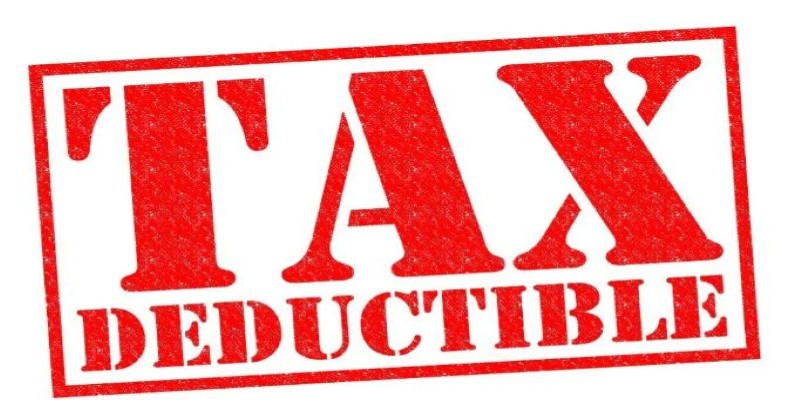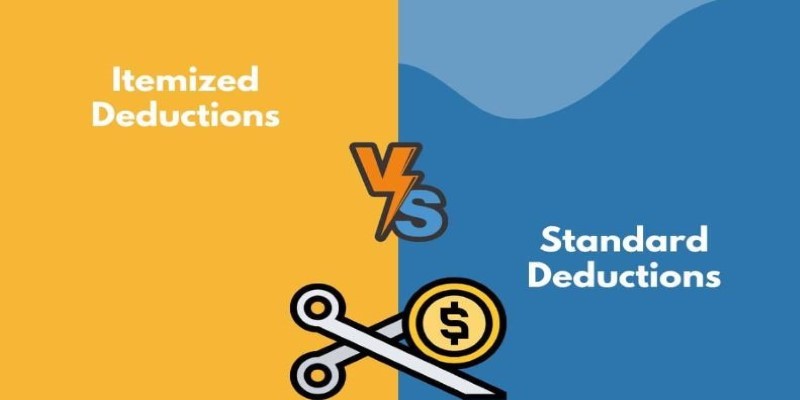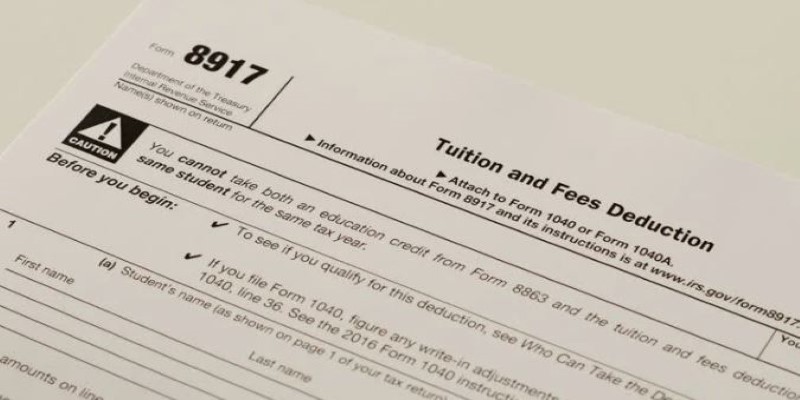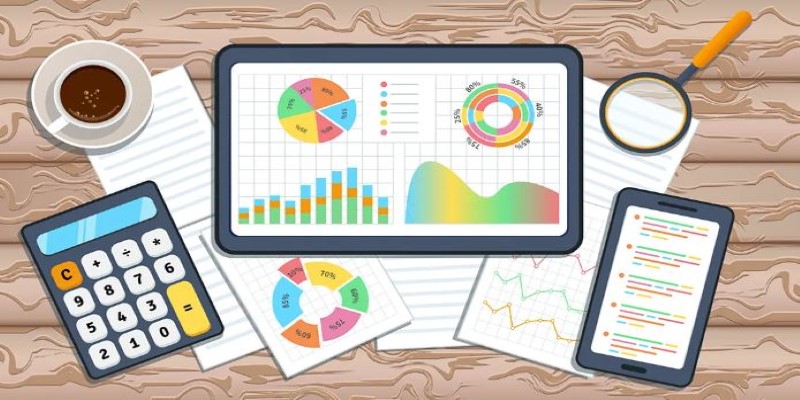What Are Tax Deductions and How Do They Work? A Guide to Common Tax Breaks
Dec 13, 2024 By Darnell Malan
Tax deductible refers to expenses that can be subtracted from your total income, reducing the amount of income subject to taxation. This concept helps lower your overall tax liability, meaning youll owe less money to the government. For instance, if you earn $50,000 and have $5,000 in deductible expenses, youll only be taxed on $45,000. Common tax deductions include mortgage interest, charitable donations, and business expenses.

Whether you are an individual or a business owner, knowing what is taxable and what might be tax-deductible can literally save you thousands of dollars each year. In the following article, we explore the meaning of tax-deductible and some of the most common deductions available to assist in reducing your taxable income.
The Basics of Tax Deductions
Tax deductions can be of any kind, and their forms can really vary according to the situation, profession, or lifestyle of an individual. Keeping it simple in words, any qualifying expense that reduces your income used for taxable purposes is called a deduction. The amount of money that you can save with tax deductions depends upon a few things: income level, filing status, and the total amount of eligible expenses incurred. The IRS admits this and lets you deduct these because they understand not all the money one makes goes directly into their pocket but is expended on necessary expenditures.
To put it into perspective, let's clarify: Tax deductions actually translate into a vehicle whereby you reduce your taxable income. That is, the more deductions you have, the less you owe to the government. It would be worth noting here that tax deductions are not tax credits. While a deduction actually reduces your taxable income, a tax credit actually reduces the tax liability. That explains why tax credits usually yield a bigger advantage than deductions.
Common Tax Deductions
Tax deductions aren't a one-size-fits-all measure. What can apply to one person isn't applicable to another. Here are some of the most common deductions that most people can claim.
Standard vs. Itemized Deductions

The IRS offers two ways to claim deductions: standard and itemized. The standard deduction is a fixed amount based on your filing status, like $13,850 for singles in 2023. Itemized deductions, such as medical costs or mortgage interest, require you to list qualifying expenses. Its only worth itemizing if these expenses exceed the standard deduction for your status.
Charitable Contributions
Donating to charity can reduce your taxable income if you itemize deductions. You can deduct both cash donations and the value of goods donated, like clothes or furniture. To claim these deductions, keep detailed records, such as receipts. The more you give to qualifying organizations, the higher your potential tax savings, especially if you're in a higher tax bracket.
Mortgage Interest
Homeowners with mortgages can deduct the interest they pay on their loans. This deduction is particularly beneficial during the early years of the mortgage when a larger portion of payments go toward interest. You can deduct interest for both primary and secondary homes, but there are limits based on the size of your mortgage. This can lead to significant savings.
Medical and Dental Expenses
Certain medical and dental expenses can be deducted if you itemize. The expenses must exceed 7.5% of your adjusted gross income (AGI). Deductible costs include doctor visits, surgeries, and prescriptions, but not insurance premiums paid by your employer. Keeping detailed records of your out-of-pocket medical costs is essential to claim this deduction successfully.
Education Expenses
Some education-related costs are tax-deductible. You can deduct up to $2,500 for student loan interest if you meet specific income requirements. Additionally, credits like the American Opportunity Tax Credit (AOTC) help reduce your tax liability if you or your dependents pursue higher education. These credits can provide more direct savings than standard deductions.
Business Expenses
Self-employed individuals and business owners can deduct various business-related expenses. This includes office supplies, travel costs, and even a portion of your home if you work from home. These deductions reduce your business's taxable income, lowering your overall tax bill. Proper record-keeping is critical to justify your business expenses.
State and Local Taxes

You can deduct state and local taxes (SALT), including income, sales, and property taxes. However, this deduction is capped at $10,000 for individuals and married couples filing jointly. This is particularly helpful for taxpayers in high-tax states, where these taxes can be a significant portion of their expenses. Be sure to track your SALT payments.
Retirement Contributions
Contributing to retirement accounts like a 401(k) or IRA can lower your taxable income. These contributions are deductible up to certain limits, which helps reduce the taxes you owe in the current year. Additionally, these contributions grow tax-deferred, meaning you wont pay taxes until you withdraw the funds in retirement.
How to Maximize Your Deductions
The key to maximizing your tax savings is being organized and staying informed. Start by keeping track of your expenses throughout the year, particularly those that could potentially qualify as deductions. For instance, save receipts for charitable donations, medical bills, and business-related expenses.
When tax season rolls around, consider whether itemizing your deductions makes sense. If your deductible expenses exceed the standard deduction for your filing status, itemizing could result in significant tax savings. If not, its usually simpler to take the standard deduction.
Also, make sure to take full advantage of retirement contributions and educational credits. Many people overlook these opportunities, but they can make a big difference in your overall tax situation.
Conclusion
Tax deductions are one of the best ways to lower your taxable income, reducing the amount of taxes you owe to the government. From the standard deduction to charitable donations, mortgage interest, and business expenses, there are plenty of options available to help you save money. The more you understand how tax deductions work, the better prepared you'll be to use them to your advantage. Remember that its important to keep good records and be diligent about claiming all the deductions youre entitled to. By doing so, you can significantly reduce your tax liability and keep more of your hard-earned money.








